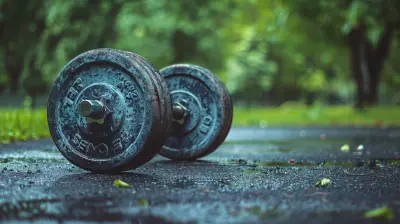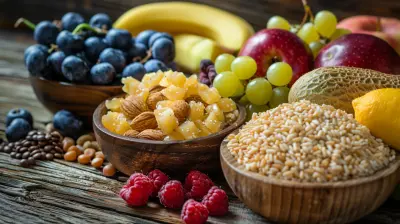How Much Protein Do You Really Need on a Low Carb Diet?
27 April 2025
Let’s talk protein. Seriously, if you’ve ever dipped your toes into the world of low carb diets, you’ve probably asked yourself the golden question—“How much protein should I actually be eating?” Too little and you risk losing muscle along with fat. Too much and you might sabotage your results altogether. So where’s the sweet spot?
Well, buckle up. We’re diving deep into the world of protein, breaking it down into bite-sized info (pun totally intended). Whether you're keto, paleo, or just cutting carbs for better energy, by the end of this read, you’ll know exactly how to tailor your protein needs for YOUR body.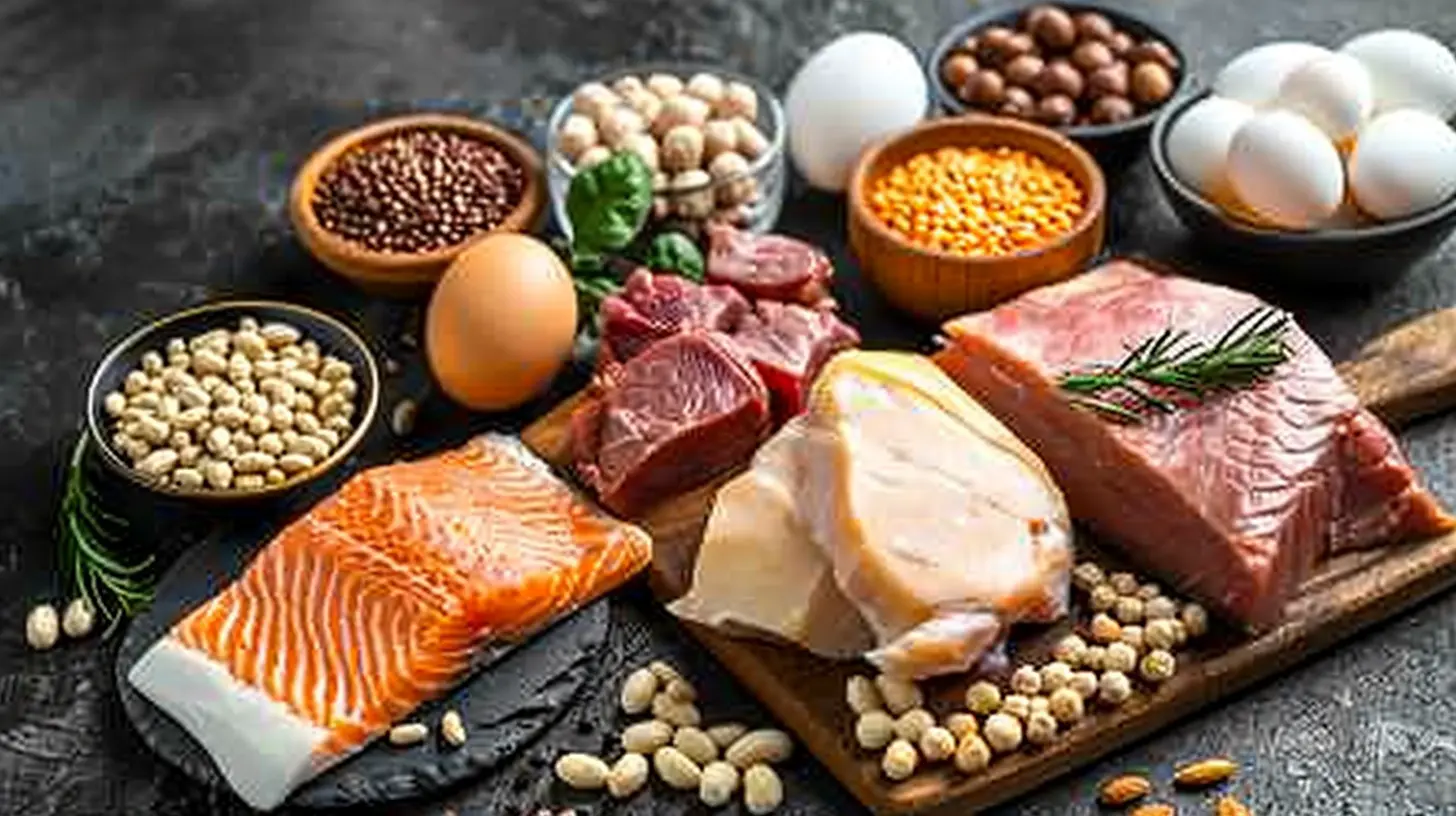
🌟 Why Protein Matters, Especially On A Low Carb Diet
Let’s start with the basics. Protein isn’t just for bodybuilders and gym buffs—it's crucial for everyone. It's the building block of your muscles, skin, hormones, enzymes, and even your immune system.Now, on a low carb diet, your body starts to switch gears. Without all the carbs for energy, it turns to fat and, yep, sometimes protein too. That means protein becomes even more important—not just for building and repairing, but for fueling your body.
Think of it like this: if your body were a car, carbs are like gasoline, and protein? It’s like the engine parts. You don’t want the engine breaking down just to keep the wheels spinning, right?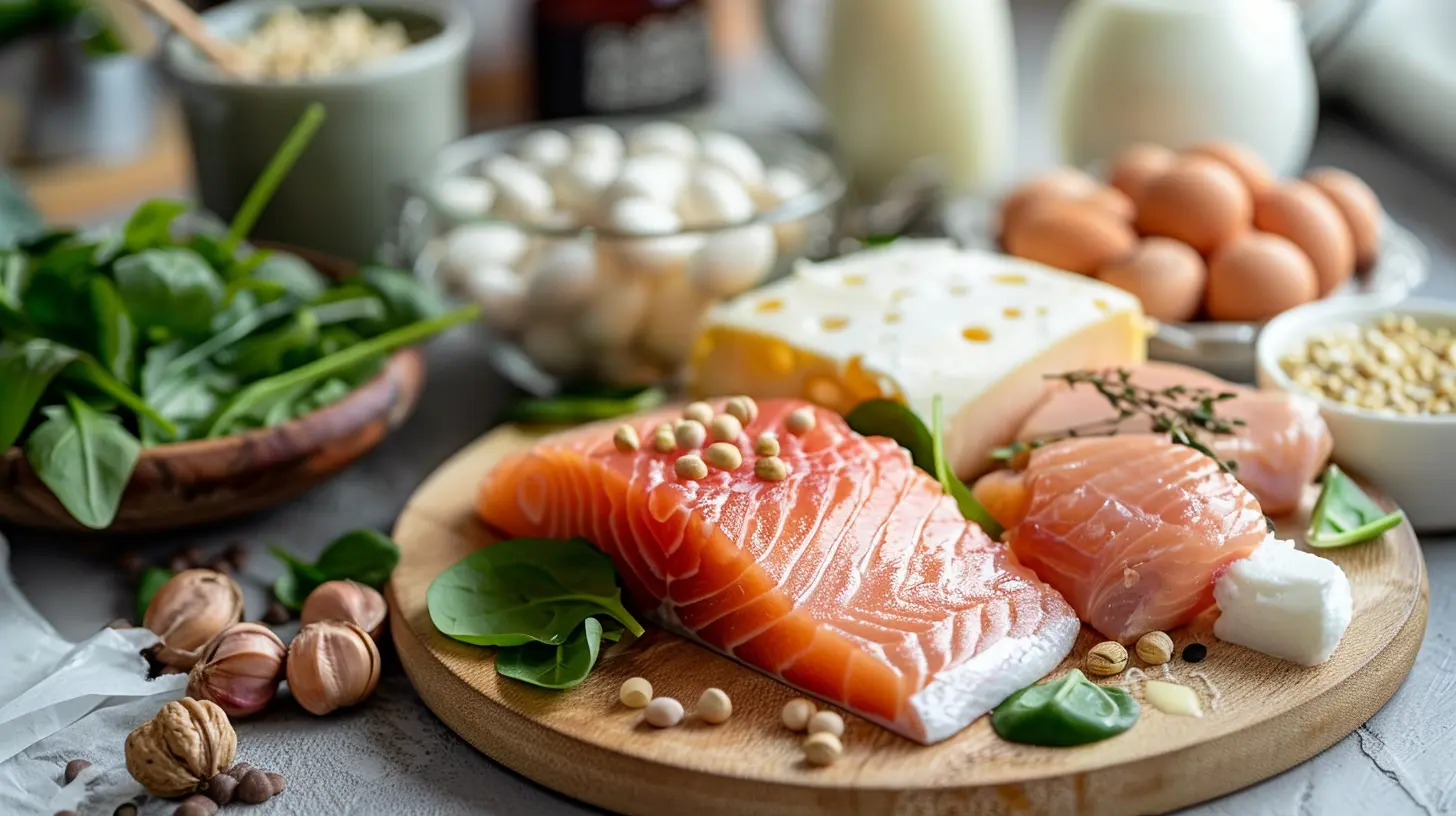
🥩 What Happens When You Don’t Get Enough Protein?
Ever feel tired, weak, or constantly hungry on your low carb plan? You may not be eating enough protein. Here’s why that’s a problem:- Muscle Loss: Your body might start breaking down muscle for fuel.
- Slowed Metabolism: Less muscle = lower calorie burn.
- Poor Recovery: Whether it’s from workouts or daily stress, your body can’t bounce back like it should.
- Nagging Cravings: Protein helps you feel full—without it, the cookie jar starts whispering your name.
Bottom line? Skimping on protein can derail all your hard work.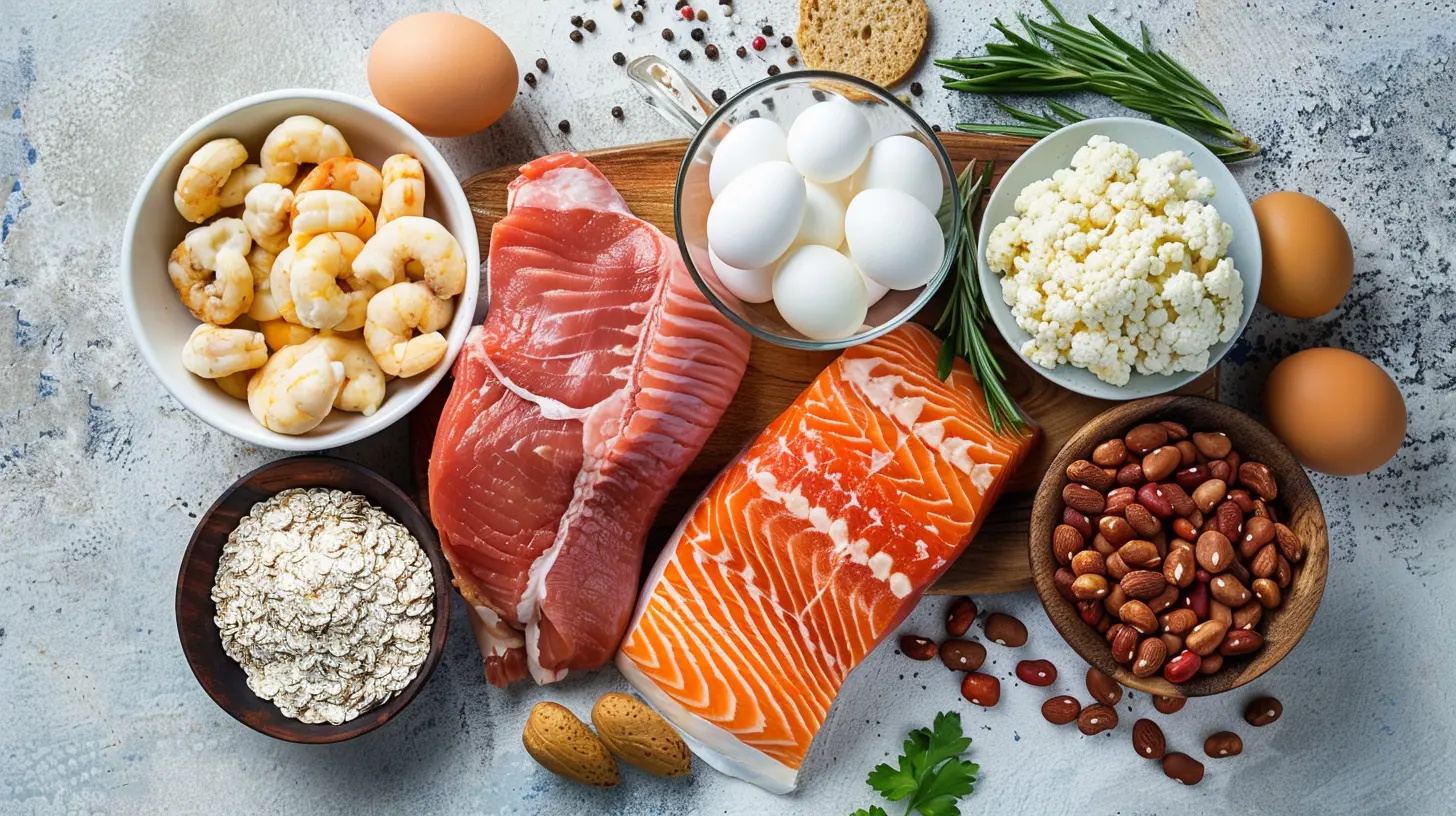
⚖️ The Goldilocks Zone – Not Too Little, Not Too Much
Okay, so we know protein is essential. But how much is enough? How much is too much? Here’s where it gets interesting.On a standard diet, the RDA (Recommended Dietary Allowance) for protein is about 0.8 grams per kilogram of body weight. But let’s be honest—that's the bare minimum to avoid deficiency, not thrive.
On a low carb diet, especially one focused on fat loss or muscle maintenance, many experts bump the number up to somewhere between:
➡️ 1.2 to 2.0 grams per kilogram of body weight
(That’s about 0.54 to 0.9 grams per pound)
So if you weigh 150 pounds, your target protein intake would be somewhere between 80 to 135 grams of protein per day.
But wait—there’s more to it.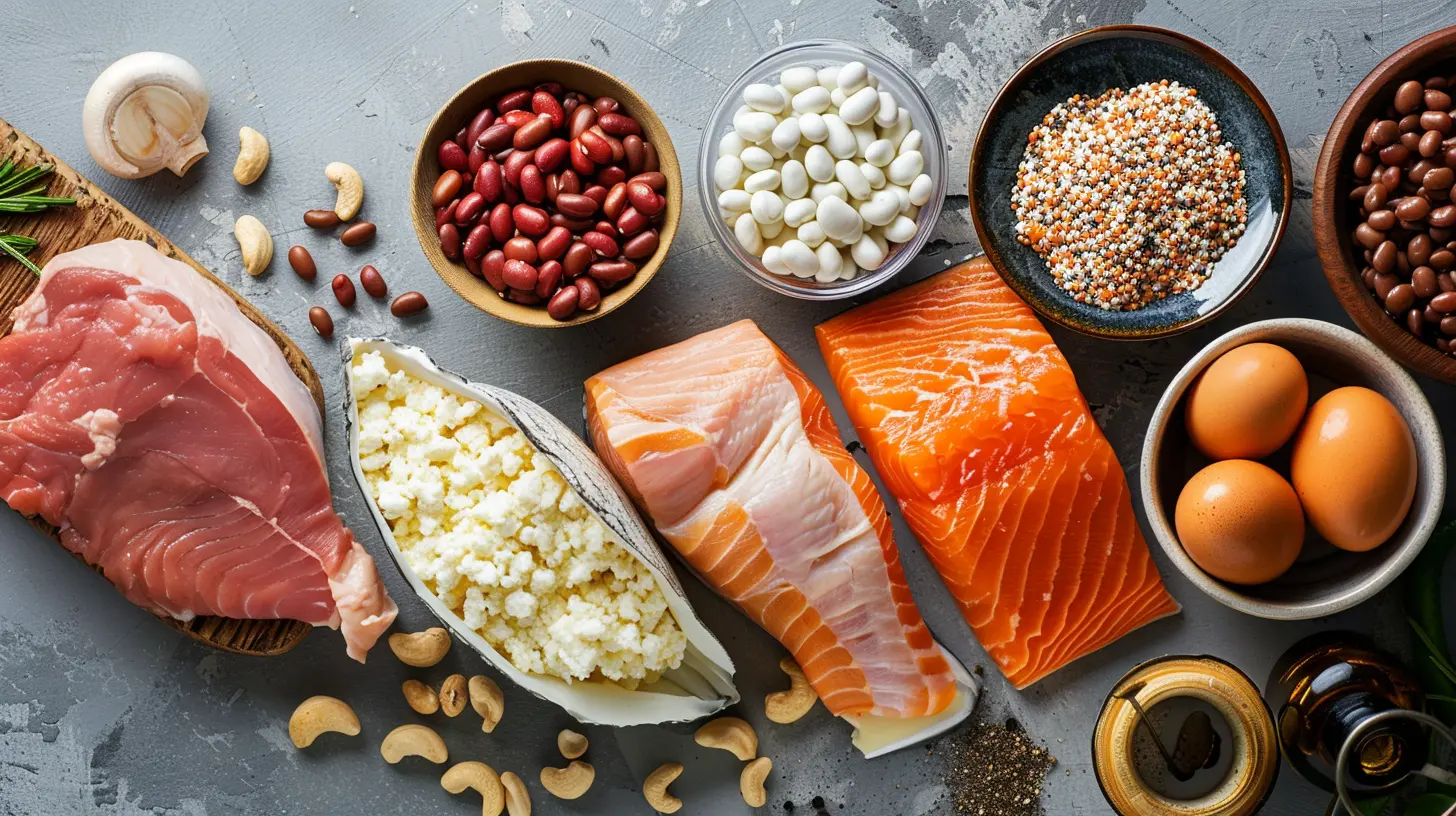
🧬 Personalized Protein Needs – Because One Size Never Fits All
Let’s break it down even further. Your ideal protein intake depends on a few key factors:1. Your Goals
- Weight loss: Stick to the higher end (1.6–2.0 g/kg). Protein helps preserve lean muscle while cutting fat.- Muscle gain: Again, more is better. Your muscles need those extra building blocks.
- Maintenance: You can hover around 1.2–1.5 g/kg.
2. Activity Level
- Sedentary? You don’t need as much.- Moderately active? Aim for the middle.
- Athlete or heavy lifter? Crank it up.
3. Body Composition
- Leaner individuals may need more protein to protect muscle.- If you carry more body fat, base your intake on your lean body mass, not total weight.
4. Your Low Carb Approach
- Keto (very low carb, high fat): Moderate protein is key. Too much can kick you out of ketosis due to gluconeogenesis (fancy word for your body turning protein into glucose).- Low-to-moderate carb (like paleo): You’ve got more wiggle room.
Remember, no two bodies are the same. You're a unique human, not a math equation—and that’s okay.
🍳 What Does That Look Like In Real Food?
Let’s get practical. What does 100 grams of protein actually look like on your plate?Here’s a quick peek:
| Food | Protein (approx.) |
|------|-------------------|
| 1 chicken breast (grilled) | 30g |
| 1 egg | 6g |
| 1 scoop whey protein | 20-25g |
| 100g salmon | 25g |
| 1 cup Greek yogurt | 10g |
| 1 cup cottage cheese | 28g |
| 3 oz steak | 22g |
Mix a few of these throughout your day, and boom—you’re hitting your goal.
Pro tip: Don’t try to jam all your protein into one meal. Spread it throughout the day for better digestion and absorption. Think breakfast, lunch, dinner, maybe a snack or shake.
🚫 The Danger Of Too Much Protein On A Low Carb Diet
Here’s where people get nervous, especially keto enthusiasts. “If I eat too much protein, will it kick me out of ketosis?”Let’s unpack that.
Yes, technically, excess protein can be converted into glucose through gluconeogenesis. But it’s not automatic. Your body will only do this when it needs to—like when carbs are super low and protein intake is excessive.
So what’s excessive?
We’re talking way overboard, like consistently blowing past 2.5g/kg or eating protein-heavy meals without adequate fat.
For most low carb folks, staying within the 1.2–2.0 g/kg range is perfectly safe and won’t mess with your fat-burning flow.
Key takeaway: Moderate, intentional protein is your friend.
🧠 Protein & The Mental Game: Why It Helps You Stick To Your Diet
Ever noticed how much easier it is to stay on track when you're not hangry?Protein plays a huge role in that. Here’s how:
- Keeps You Full: It slows digestion and curbs hunger hormones.
- Stabilizes Blood Sugar: No crazy insulin spikes like with carbs.
- Boosts Your Mood: Protein contains amino acids that help produce feel-good neurotransmitters (hello, serotonin!).
Eating enough protein works like a trusty co-pilot for your diet. It keeps your cravings in check, energy stable, and willpower strong. And that means fewer cheat meals, fewer “oops” moments, and more results.
🚀 Easy Tips To Increase Protein Intake Without Getting Bored
Not a fan of plain chicken breast on repeat? No worries. Here are some delicious, creative, and effortless ways to sneak in more protein:1. Protein pancakes – Use eggs, cottage cheese & oats.
2. Greek yogurt parfaits – Add berries and nuts for fiber & crunch.
3. Egg muffins – Meal prep these and grab ‘n go.
4. Protein smoothies – Add nut butter, chia seeds & spinach for extra nutrients.
5. Tuna or chicken salad lettuce wraps – Crunchy, fresh, satisfying.
6. Hard-boiled eggs – The original protein snack.
7. Jerky or meat sticks – Just check the sugar content.
Switch it up. Keep it fun. Food should work FOR you, not against you.
💪 Final Thoughts: Protein Is Your Low Carb Superpower
So, how much protein do you really need on a low carb diet?The short answer: more than the standard recommendation, but not so much you turn your meals into a carnivore buffet.
Aim for that sweet spot—somewhere between 0.6 to 1 gram of protein per pound of body weight, depending on your goals, activity, and type of low carb diet.
In the end, it's all about listening to your body. Start with a baseline, track how you feel, adjust as needed. When protein is dialed in, everything else gets easier—fat loss, muscle retention, energy, and even your mood.
So next time you're prepping a meal, ask yourself: “Am I giving my body the fuel it needs?”
And if not, now you know exactly how to fix it.
You're not just dieting. You're building a better, stronger YOU.
all images in this post were generated using AI tools
Category:
Low Carb DietAuthor:

Holly Ellison
Discussion
rate this article
4 comments
Sloan Young
Understanding your protein needs on a low carb diet is crucial for maintaining muscle mass and overall health. It's not just about quantity but also the quality of protein sources, ensuring a balanced intake for optimal nutrition.
May 8, 2025 at 4:57 AM

Holly Ellison
Thank you for highlighting the importance of both protein quantity and quality on a low carb diet! Maintaining muscle mass is indeed crucial, and a balanced intake is key to achieving optimal health.
Solara McEachern
This article provides valuable insights into protein requirements on a low-carb diet. It emphasizes the importance of balancing protein intake to support muscle maintenance while promoting fat loss. Individual needs can vary, so it's crucial to consider factors like activity level and health goals when determining your ideal protein intake.
May 5, 2025 at 4:28 AM

Holly Ellison
Thank you for your thoughtful comment! I appreciate your insights on the importance of balancing protein intake based on individual needs.
Romina McCune
Balance protein; avoid excess carbs.
April 30, 2025 at 4:47 PM

Holly Ellison
Thank you for your comment! Balancing protein while moderating carbs is key for optimal results on a low-carb diet.
Kyle McRae
This article provides valuable insights into protein requirements for those on a low-carb diet. It emphasizes the importance of balancing protein intake to maintain muscle mass while promoting fat loss. Understanding individual needs is crucial, as factors like activity level and goals can significantly influence protein requirements. Great read!
April 28, 2025 at 3:57 PM

Holly Ellison
Thank you for your feedback! I'm glad you found the insights on protein balance and individual needs helpful for a low-carb diet.

